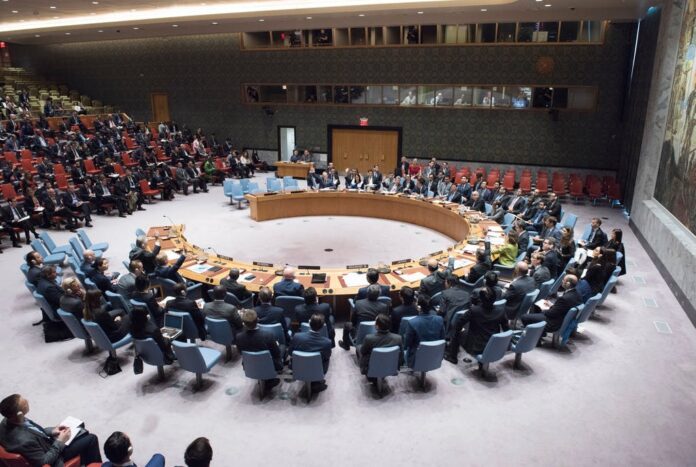The U.N. Security Council condemned the supply of weapons and ammunition to al-Shabab extremists and others in Somalia in violation of a U.N. arms embargo and voted Monday to extend the ban for a year, saying the al-Qaida affiliate’s terrorist activities continue to destabilize the Horn of Africa nation.
It urged Somalia’s federal government to keep working with financial authorities, private sector financial institutions, and the international community to crack down on al-Shabab’s ability “to generate revenue and launder, store and transfer resources” for use in terrorist and other activities.
The council’s resolution also expressed concern at “continued reports of corruption and diversion of public resources in Somalia.”
The council kept in place the arms embargo on the sale or resale of weapons and military equipment to Somali forces, a ban on the sale or shipment to Somalia of components used to manufacture improvised explosive devices that al-Shabab is increasingly using, and a ban on the export of charcoal, once a key money-earner for the country.
The vote was 13-0, with Russia and China abstaining.
Russia objected to references to Eritrea and Djibouti in the resolution, which says the council “will continue to follow developments towards the normalization of relations between Eritrea and Djibouti.”
The Security Council imposed an arms embargo and other tough sanctions on Eritrea in 2009 for supplying weapons to al-Shabab rebels in Somalia and for refusing to resolve a border dispute with Djibouti, a key U.S. ally in the Horn of Africa. It lifted the sanctions on Eritrea in November 2018.
Russia’s deputy U.N. ambassador, Anna Evstigneeva, said Moscow opposed the reference because “the current state of the relationship between Djibouti and Eritrea doesn’t pose a threat to international peace and security” and “the remaining points of contention between these two countries can be settled through bilateral diplomacy.”
China objected to the council’s failure to modify the arms embargo, as the Somali government has repeatedly requested, to recognize its strides toward reconstruction and assuming responsibility for security in the country.
Only in the past few years has Somalia begun to find its footing after three decades of chaos from warlords to al-Shabab and the emergence of an Islamic State-linked extremist group. This year, a political crisis further postponed long-delayed elections, though they are reportedly moving ahead finally.





